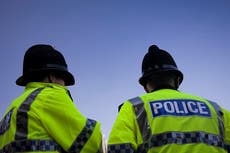The Independent's journalism is supported by our readers. When you purchase through links on our site, we may earn commission.
As England goes back into lockdown, what impact will restrictions have on the nation this time?
The second lockdown may be less severe than the first, but the nation will face many new challenges

With a second lockdown coming into force today, what impact will this have on individuals, families and businesses in comparison to the first lockdown introduced in March?
During the first lockdown, people were not regarded as being “clinically vulnerable” until the age of 70, but 60 year olds have now been added to the list of those “more at risk”, because they have now been defined as more susceptible to the serious effects of Covid-19.
Although there will be a number of key differences, such as schools remaining open, professional sports continuing, and people being permitted to leave their homes to exercise multiple times a day rather than once a day, other factors remain the same. Funerals, for example, can be attended by a maximum of 30 people, although the advice is that only close family members and friends should attend.
The same difficulties remain in hospitals, where some have suspended visiting until further notice because of the spike in coronavirus cases. This will inevitably impact patients’ mental and physical health at a time when family contact can be crucial to their recovery.
I worry about families living in cramped conditions and the devastating impact on their lives if they are unable to leave their homes. One mother told me: “The only place that my children will get more space is in school; though quite different from the normal way schools functioned, at least they aren’t constrained in a small space.”
Nevertheless, teachers worry about their increased risk of contracting Covid-19 if schools remain open.
People have found new ways of working and living, with remote and home working becoming the norm rather than the exception. Others will have lost their jobs and now face further barriers to securing alternative employment. What remains the same is that for the 3 million self-employed, less support is available.
With winter approaching and as more time is spent at home, those who are struggling financially, particularly the unemployed and the elderly, will be worried about fuel costs.
Many will be dreading another period of isolation and loneliness, as the first lockdown will still be clear in their memories. One of my constituents has been a carer to her 90-year-old mother who was diagnosed with dementia six years ago. She is 70 years old and suffers from her own health struggles. She spoke to me about her apprehension of another lockdown: “People think that I need to be resilient, but solitude during lockdown is hard to cope with. Routine helps me cope, but with another lockdown looming, stress and unpredictability intensifies.”

The pandemic has also brought out the worst in some, especially those who have continued to live their lives as normal, refusing to social distance and subsequently putting others at risk, as well as potentially increasing pressure on the NHS. We only need to look at the recent scenes in Liverpool and Nottingham city centres to see how little regard some people have for others’ lives.
People have been warned not to panic buy yet reports of empty supermarket shelves around the country emerge because of stockpiling, and difficulties in obtaining online grocery delivery slots.
The first lockdown brought out the best in many though. It was wonderful to see the compassion, support and altruism in many communities, which we hope will continue this time, extending a helping hand and companionship to the vulnerable. The art world was instrumental in using the pandemic to help people, from paintings and cartoons to brighten people’s lives to engaging people in creative activities. In my borough, for example, poets like Shamim Azad worked tirelessly during the pandemic to bring enjoyment and enrichment to people in new ways.
From Easter to Ramadan, Eid to Vaisakhi, many religious events were celebrated digitally. This month Diwali is celebrated and as a Liberal Democrat councillor representing a large Hindu community, Anton Georgiou tweeted: “Celebrations this year will be different, but we will overcome this.”
Will we go back to clapping every Thursday for the NHS and frontline workers holding the fort against Covid?
Our leaders keep telling us we can get through this because we are in it together; we are tough and resilient.
The government has been criticised for failing the elderly, for lack of PPE provision for frontline workers, for the failure of effective test and track systems, and for the devastating PHE report revealing that people of colour were disproportionately impacted by Covid.
The real question is not if we are ready, but if the government is ready to protect our nation through the second lockdown; a lockdown potentially more critical than the first one?
Join our commenting forum
Join thought-provoking conversations, follow other Independent readers and see their replies
Comments

Bookmark popover
Removed from bookmarks